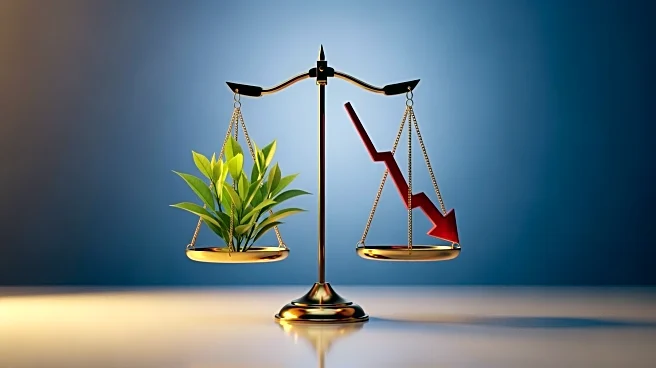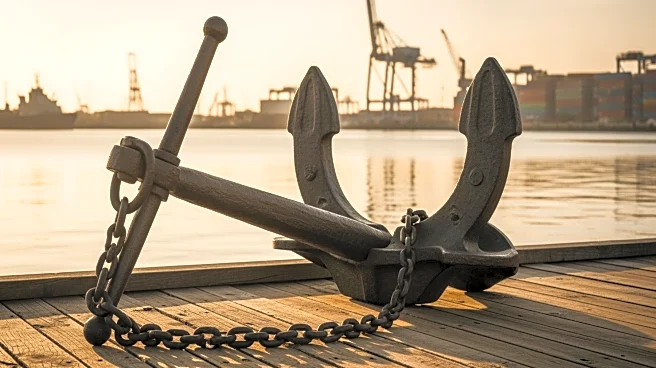What's Happening?
China's economy grew by 4.8% in the third quarter, marking the slowest pace in a year, as expected by analysts. The ongoing real estate slump has contributed to this slowdown, with fixed-asset investment
unexpectedly contracting by 0.5% in the first nine months of the year. Property investment continued its decline, sliding 13.9% through September. Analysts have expressed concerns over the 'rare and alarming' drop in fixed-asset investment, which could indicate structural changes in the economy. Retail sales rose by 3% in September, while industrial production exceeded expectations with a 6.5% increase.
Why It's Important?
The slowdown in China's economic growth and the decline in investment are significant as they reflect broader challenges facing the world's second-largest economy. The real estate slump and reduced investment spending could have ripple effects on global markets, including the U.S., given the interconnected nature of international trade and finance. The decline in private sector investment suggests a lack of confidence in China's growth prospects, which could impact U.S. businesses and investors with exposure to Chinese markets. Additionally, the ongoing trade tensions between the U.S. and China add complexity to economic strategies and policy decisions.
What's Next?
China's economic challenges may prompt policymakers to consider new strategies to stimulate growth and stabilize the real estate market. Potential measures could include increased government spending on infrastructure and manufacturing, as well as efforts to boost consumer confidence. The U.S. may need to monitor these developments closely, as changes in China's economic policies could affect bilateral trade relations and global economic stability. Investors and businesses with interests in China will likely adjust their strategies in response to these shifts.
Beyond the Headlines
The economic slowdown in China could have long-term implications, including potential shifts in global economic power dynamics. As China navigates its structural challenges, other countries may seek to capitalize on opportunities to strengthen their own economic positions. The situation also raises ethical considerations regarding the impact of economic policies on social inequality and environmental sustainability. The focus on investment and consumer spending highlights the need for balanced growth that considers both economic and social factors.










